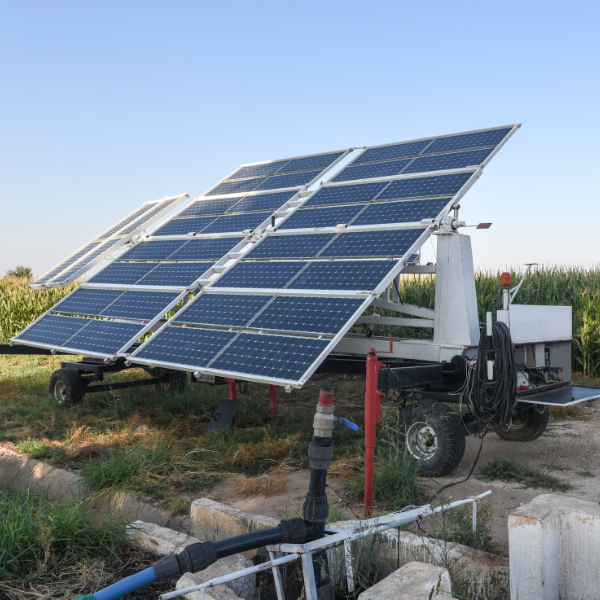Nigeria Replication Action


Replication action description
The action will be implemented by two local ventures:
- Havenhill Synergy Ltd., who will replicate and scale up an Infrastructure-as-a-Service model for solar irrigation for smallholder farmers in Nigeria
- Powerstove Ltd., who will focus on enhancing the affordability and accessibility of locally manufactured biodigesters for rural communities and female-led households.
Havenhill will replicate and scale up an Infrastructure-as-a-Service model for solar irrigation for smallholder farmers. It will implement its model in 4 communities in Oyo State, in southwestern Nigeria, which already benefit from solar mini-grids operated by Havenhill. The action will form part of Havenhill’s integrated approach to address the needs of smallholder farmers within its mini-grid host communities.
Powerstove will replicate and scale up a PAYGO (lease-to-own) business model for locally manufactured biodigesters. Powerstove will operate in locations across Nigeria, on the basis of its existing distribution network for efficient biomass cookstoves. The focus will be on rural and agricultural communities that currently rely on burning of biomass for cooking, and where biogas can provide a cleaner source of energy and bring about additional benefits.
Replication action activities
Havenhill:
- Pilot Infrastructure-as-a-Service business model for solar irrigation solutions in 4 communities in Oyo State
- Optimise model to increase affordability for small-holder farmers through continuous surveys and customer feedback
- Disseminate best practices and lessons learnt to other SMEs, policymakers and other stakeholders in Nigeria to replicate business model at a wider scale
Powerstove:
- Expand local production and product distribution hubs in Nigeria
- Reach 1,000 new customers with clean cooking biodigesters
- Replicate and scale-up a PAYGO revenue model for biodigesters with a focus on low-income female-led households in rural Nigeria
Description of the problem addressed
Through a focus on solar irrigation and biogas solutions, this replication action will address areas of high priority currently in Nigeria’s energy transition. The largest economy in Africa, Nigeria has one of the highest energy access deficits in the world. This situation is particularly pronounced in rural areas, and compounds problems in other areas such as food security, health and employment creation. The two solutions deployed in this replication action are key to addressing key development priorities, including increasing agricultural productivity, tackling indoor air pollution, and empowering women.
Objectives
SESA’s main objective is to support a diversity of affordable solutions that deliver access to reliable, efficient and sustainable energy services for all, creating business opportunities that can directly contribute to development. The objective of the Nigeria Replication action is to replicate and scale-up promising technologies and business models as part of the SESA project, in the following priority domains:
- Solar irrigation technologies for rural communities
- Waste-to-Energy Solutions (Biogas) to improve clean cooking as well as access to energy.
Technology being tested
- Solar irrigation for smallholder farmers:
The main components of solar water pumps and solar-powered irrigation systems are the power source (chiefly the solar panel and load controller), the pump, the water storage system (if any), and the irrigation equipment. In line with the recent reductions in cost of solar PV technology, the cost of solar irrigation has fallen significantly over the past decades. Over their lifetime, solar irrigation systems can bring significant savings to smallholder farmers compared to a diesel-powered pumps, when considering the cost of the fuel. However, the upfront investment, even for small solar water pumps, is a barrier to adoption and many business models seek to address this. - Biodigesters for household use:
Biogas and small biodigester technology represent a transformative solution for rural, low-income households, addressing energy needs, waste management, and environmental sustainability. Biogas is a renewable energy source produced through the anaerobic digestion of organic materials, such as agricultural waste, animal manure, and kitchen scraps, in biodigesters. These systems reduce dependence on traditional biomass fuels like wood and charcoal, which often pose health risks and contribute to deforestation. The technology is particularly valuable in areas with abundant agricultural residues, effectively converting waste into a valuable energy resource.


